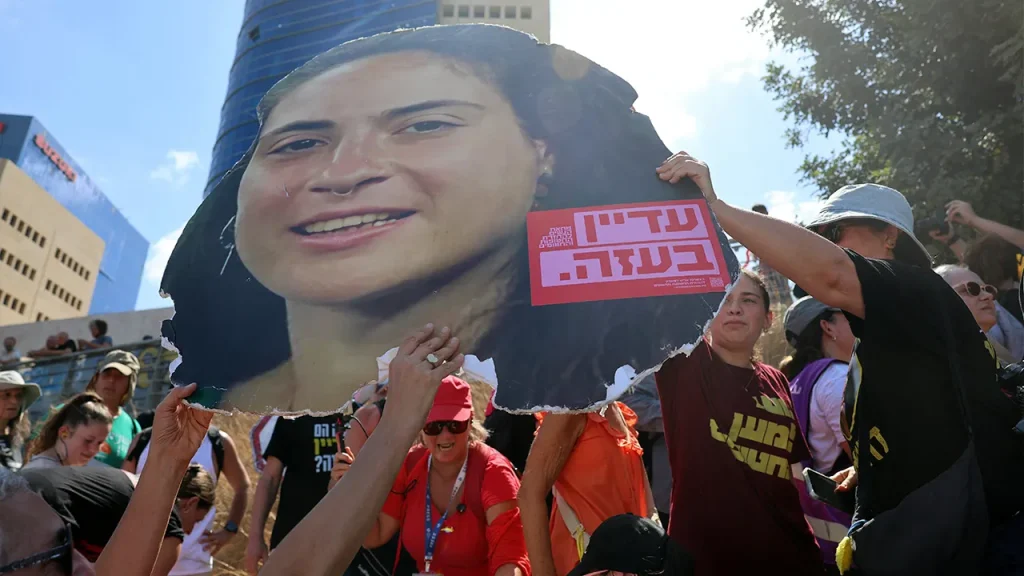Israel Recovers Body of Last Female Hostage from Gaza
The body of Inbar Hayman, the last female hostage in Gaza, has been returned to Israel, bringing her family a bittersweet mixture of relief and renewed grief. The Israel Defense Forces (IDF) confirmed that intelligence indicated Hayman was murdered during the Nova music festival attack on October 7, 2023, and her body was subsequently taken into Gaza. She was only 27 years old when her life was cut short, leaving behind her parents and brother who have spent agonizing months awaiting closure. Hayman, known by her artistic name “PINK,” was a talented graffiti artist with a vibrant spirit that matched her colorful creations. In a beautiful tribute to their daughter’s artistic legacy, her family has requested that mourners wear pink to her funeral, even issuing funeral information in pink rather than the traditional black lettering. This personal touch speaks volumes about how they wish to celebrate her life—not just as a victim of terrorism, but as a creative soul who brought color and joy to the world around her.
“This is a feeling that cannot be described, joy mingled with profound sadness,” Hayman’s family shared in a statement released by the Hostages and Missing Families Forum. “Now Inbar will receive the rest and honor she so deeply deserves.” Beyond their personal grief, they emphasized what they believe would be their daughter’s wish: “We are certain that if Inbar were here with us today, she would urge us to continue fighting for all 19 of her fellow hostages who remain in captivity.” The family proudly noted her service as a commander in the Caracal Battalion for three years, calling her “a hero of Israel” and inviting the public to join in honoring her memory at her funeral, which, as is common in Israel for hostages and fallen soldiers, will be open to the public.
On the same day as Hayman’s return, Israel also received the body of Sgt. Maj. Muhammad Al-Atresh, who served as an IDF tracker—a position predominantly held by Bedouin Israelis. Like Hayman, Al-Atresh was killed during the October 7 massacre and his body was taken into Gaza. The IDF officially declared him deceased on June 24, 2024, after months of uncertainty for his extensive family. Al-Atresh leaves behind a remarkable legacy and a large family mourning his loss: his parents, nine brothers, thirteen sisters, two wives, and thirteen children. His service as a tracker highlights the diversity within the Israeli military forces and the varied backgrounds of those affected by the ongoing conflict.
The return of these two hostages’ remains represents a small but significant development in the ongoing humanitarian crisis. Both the IDF and Israeli Prime Minister Benjamin Netanyahu’s office have called on Hamas to fulfill its obligation to return all deceased hostages, emphasizing the importance of allowing families to properly lay their loved ones to rest. The Hostages and Missing Families Forum has reinforced these calls, noting that while several remains have been recovered—including those of Staff Sgt. Tamir Nimrodi, Uriel Baruch, Eitan Levi, Yossi Sharabi, Cpt. Daniel Peretz, Bipin Joshi, and Guy Iluz—many more families continue to wait in agonizing limbo.
The ongoing struggle for the return of hostages’ remains has particular significance for 19 families whose loved ones’ bodies are still held in Gaza. Among these are the remains of two American citizens: 19-year-old Itay Chen and 21-year-old Omer Neutra, whose parents continue to advocate for their return. Perhaps most poignant is the case of Hadar Goldin, whose body has been held since 2014. His mother, Leah, has spent more than a decade fighting for her son’s return, highlighting how the grief of these situations can stretch across years, even decades, as families are denied the fundamental human right to properly bury their dead and begin the healing process.
For families like the Haymans, the return of their loved ones’ remains creates a complicated emotional landscape—relief at finally having certainty and the ability to conduct proper burial rites, mixed with the renewed pain of confronting the finality of their loss. As they prepare to honor Inbar with splashes of pink amid the traditional solemnity of a funeral, they embody the resilience of those caught in conflict zones: finding ways to celebrate the unique spirits of those they’ve lost while advocating for others still waiting. Their call to continue fighting for the remaining hostages reflects how personal grief often transforms into broader advocacy for justice and humanity in the midst of ongoing conflict, reminding us all of the profound human cost behind the headlines.


